News
Shettima returns after promoting Nigeria at WEF 2025 in Davos
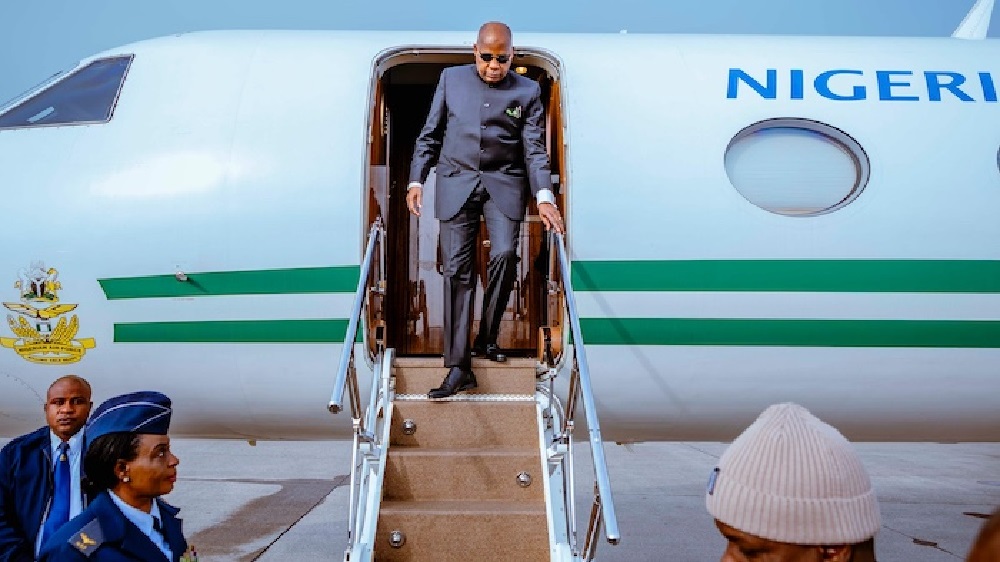
Vice President Kashim Shettima has returned to Nigeria after a successful series of engagements at the 2025 World Economic Forum (WEF) in Davos, Switzerland.
Vice President Shettima’s return was announced in a statement issued by Senior Special Assistant to the President on Media and Communications, Office of the Vice President, Stanley Nkwocha, on Friday.
The Vice President, who represented Nigeria at the annual global economic summit, presented the nation’s investment opportunities to a global audience, advocated African economic integration, and held strategic meetings with world leaders and international organizations.
During his time in Davos, VP Shettima participated in forums that drew attention to the importance of driving investment into Africa’s frontier markets.
At a forum titled, “Roadmap to Co-create Investment Opportunities for Africa’s Frontier Markets,” organised by the African Development Bank (AfDB) and WEF, the Vice President reaffirmed Nigeria’s readiness to attract capital for sustainable growth.
In another forum, he assured of Nigeria’s commitment to the African Continental Free Trade Area (AfCFTA), just as he reaffirmed the nation’s resolve to leverage digital trade as a tool for economic transformation, projecting Africa’s potential to achieve a $29 trillion economy by 2050.
In bilateral meetings with global leaders, including the President of Botswana, Duma Boko, and President of South Africa, Cyril Ramaphosa, VP Shettima discussed strengthening intra-African relations and fostering partnerships to promote trade and development.
He also engaged in talks with the Director-General of World Trade Organization (WTO), Ngozi Okonjo-Iweala, and President of the World Economic Forum, Børge Brende, on collaborative efforts to address Africa’s challenges, including energy security, food crises and ecological threats.
Speaking on Nigeria’s reform agenda under President Bola Ahmed Tinubu, VP Shettima highlighted ongoing measures such as subsidy removal, exchange rate alignment and tax reforms, noting that the country is now on a path to sustained economic growth.
Other highlights of his participation include his role as a panelist in the “Financial Times Global Risks 2025” dialogue, where he stressed the importance of multilateral collaboration to address global crises.
He also advocated innovation in education and agriculture to empower Nigeria’s youth and drive economic progress.
Accompanied by senior government officials, including the Minister of Foreign Affairs, Amb. Yusuf Tuggar; Minister of Finance and Coordinating Minister for the Economy, Mr Wale Edun; Minister of Industry, Trade and Investment, Dr. Jumoke Oduwole and Executive Secretary of Nigerian Investment Promotion Commission, Aisha Rimi, the Vice President returned to Abuja following the successful conclusion of his engagements in Davos.
The Vice President was received by Borno State Governor Professor Babagana Zulum and other government officials upon arrival at Nnamdi Azikiwe International Airport, Abuja.
News
Rivers State is yet to fully stabilise– Ibas
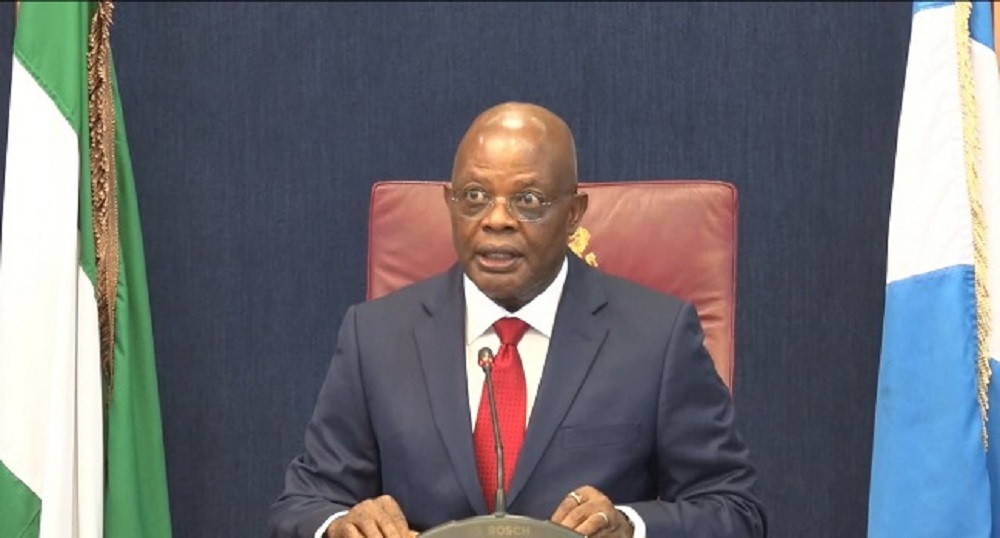
The Sole Administrator of Rivers State, Retired Vice Admiral Ibok-Ete Ibas has revealed that there is relative stability in the State, but that the State is still fragile.
The Sole Administrator revealed this in Abuja on Friday when appeared before the House of Representatives Ad hoc Committee on Rivers State.
The Committee had invited the Sole Administrator for a proper briefing on developments in Rivers State, following the suspension of the State Governor, Siminalayi Fubara by President Bola Tinubu.
Speaking when he appeared before the ad-hoc committee, Ibas requested for more time to properly brief the committee on developments in the State.
Ibas, apologisesd for his inability to attend earlier engagements, explained that the absence was not out of disregard, but rather due to the weighty and urgent demands of stabilising governance in Rivers.
“I have always held the National Assembly in the highest regard. I recognise the importance of your oversight responsibilities and your interest in the progress being made in Rivers, which is presently relatively calm, but still fragile,” Ibas said.
He went further to say: “That said, I only request your understanding and the indulgence of this committee to grant me additional time to adequately prepare and present a comprehensive and constructive briefing.
“Given the complexities and sensitivities surrounding the current transitional period in Rivers. It is important that any engagement with this committee is done with the depth, accuracy and clarity it rightfully deserves.
“I remain fully committed to cooperating with the committee and to ensuring that all relevant information is made available in due course to support your important work.
“I only request the understanding and the indulgence of this committee to grant me additional time to adequately prepare and present a comprehensive and constructive briefing given the complexities and sensitivities surrounding the current transitional period in Rivers.
“It is important that any engagement with this committee is done with the depth, accuracy and clarity it rightfully deserves.
“I remain fully committed to cooperating with the committee and to ensuring that all relevant information is made available in due course to support your important work,” he said.
Meanwhile, addressing newsmen after a close door meeting, the Chairman of the Committee, Rep. Julius Ihonvbere (APC-Edo) said that the committee resolved to give a new date to the sole administrator.
Ihonvbere, underscored the constitutional role of the National Assembly in legitimising and overseeing the state of emergency declared in Rivers.
According to the chairman, the federal legislature remains central to the state’s transitional process.
Ihonvbere reaffirmed the committee’s constitutional mandate and expressed satisfaction that the administrator had finally honored the invitation after earlier delays.
He emphasised that the committee’s mandate was rooted in constitutional authority and that some of its terms had already been communicated to the administrator in an earlier letter.
The chairman encouraged the administrator to feel at ease, stressing that the committee members had been carefully selected to ensure broad representation across geopolitical zones and legislative experience.
“I want you to feel relaxed because the members you see here were carefully selected based on zonal representation and membership of the House to advance the progress that Rivers needs to make in order to be part and parcel of the holistic structure of democracy that Nigeria represents today.
“We have demonstrated again and again our preparedness to do this job efficiently and effectively,” he assured.
News
Why we shut down MTN operation in Kogi owing to non compliance – Govt

The Kogi State Utility Infrastructure Management and Compliance Agency, (KUIMCA) has explained the reasons behind the disruption in the service mobile Telecom giant, MTN in the state, pointing out that MTN owing to non compliance.
The Telecom service has been experiencing a service distruption in the last two weeks and witnessed total shut down in the last one week.
The Director General of KUIMCA Director General, Dr Taofeeq Isah while speaking with journalists on Friday in Lokoja attributed the shut down to the failure of the Telecom company to comply fully with rules of operation as stipulated in the official gazette guiding their operation in the state.
“In my assumption of office last August, I went through their files and discovered that they have not fully complied with the rules guiding their operations in the state. I called them for a discussion where they complained of being overbilled concerning the area of the state covered by their optic fibre.
” I went with them for verification exercise to assess their claim which took about 4 days and we found out they were even covering more areas than they claimed.
“We asked they to go and make the necessary payment but MTN refused. That is why we sealed off their facilities after obtaining court order to do so so”.
The Director General called on the citizens of the state to be patient with them since their interest was being protected .
He said that since MTN is not the only network operating in the state, citizens as well as the security agencies to consider switching to other networks considering their importance in securing the lives and property of Citizens which should not be compromised under any circumstance.
Also speaking, the Executive Chairman, Kogi State Internal Revenue Service , Salihu Enehe said that MTN has arrogated to itself so much power that they have been refusing to respond to so many entrities asking for complainces on various termes of operations in the state.
The Chairman who was represented by a Director in the agency Hassana Salawu noted that
MTN has been indulging in violation of various rules not only the optic fibre right of way across the state but also and have violated every rules guiding their operations in the state.
“MTN claimed to have 48 optic fibres when audit revealed they have 199 fibres laid under the ground in the state. We have called for reconciliation meetings severally but they claimed not to be ready up till now”.
But in a swift reaction, the MTN spokesperson in the State, though will not want his name in print, confirmed that negotiations is on going, assured that the issues will soon be resolved.
News
Osun PDP Reps Dismiss Defection Claims, Pledge Support for Adeleke

By Gloria Ikibah
Eight out of the nine Peoples Democratic Party (PDP) members representing Osun State in the House of Representatives have firmly restated their loyalty to the party and Governor Nurudeen Ademola Adeleke, distancing themselves from recent defection claims.
Their stance follows public comments by Rep. Busayo Oluwole Oke, who recently exited the PDP and hinted that other members of the Osun caucus were poised to follow his lead.
In a joint statement released in Abuja on Friday, the lawmakers which include Reps Bamidele Salam, Ajilesoro Abimbola Taofeek, Mudashiru Lukman Alani, Akanni Clement Ademola, Omirin Emmanuel Olusanya, Adewale Moruf Adebayo, Adetunji Abidemi Olusoji, and Oladebo Lanre Omoleye—made it clear they remain committed to the PDP and its leadership in the state.
They described Oke’s exit as unsurprising, pointing to what they called his long-standing pattern of defiance, public criticism of the party, and antagonism towards the Adeleke-led government.
The lawmakers labelled his defection as an act of ingratitude, given the political opportunities the PDP had afforded him over the years, and cautioned him against spreading misleading narratives aimed at courting favour within his new political camp.
-

 Economy16 hours ago
Economy16 hours agoMore Nigerians to experience poverty by 2027 – World Bank
-

 News8 hours ago
News8 hours ago2027: Pro-Fubara protesters want suspended Gov to run as Atiku’s VP(Video)
-
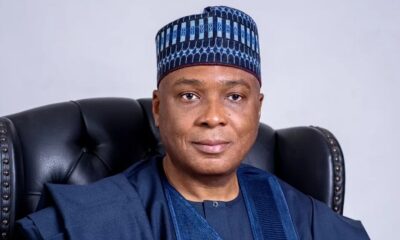
 News11 hours ago
News11 hours agoOborevwori /Okowa: PDP experiencing a rebirth and will soon bounce back-Saraki declares
-
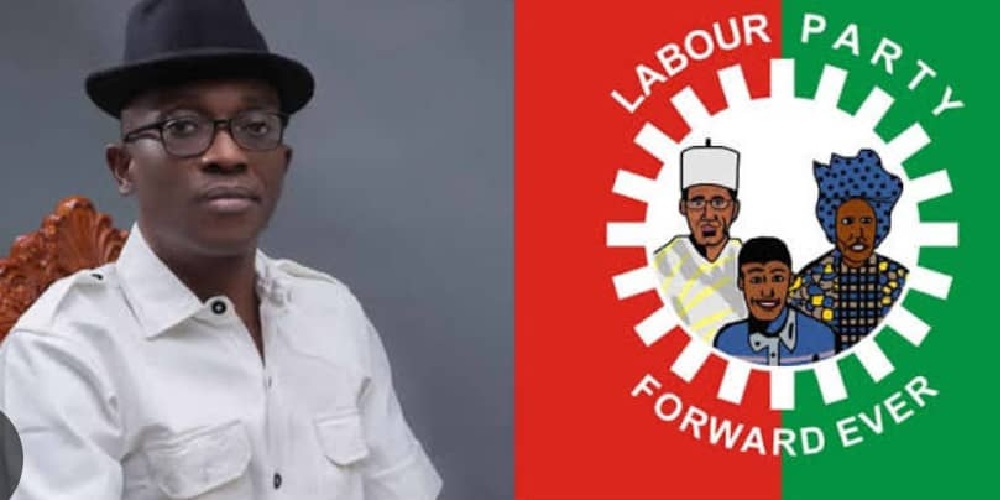
 Politics15 hours ago
Politics15 hours agoLabour Party reaffirms Abure-led leadership after Supreme Court judgment
-

 News16 hours ago
News16 hours agoGovernor Oborevwori’s Defection: A Masterstroke That Handcuffs Delta’s Opposition
-

 News15 hours ago
News15 hours ago2027 done deal, more governors joining APC – Ganduje declares
-
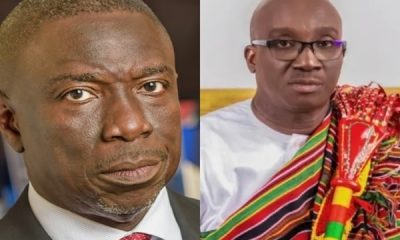
 News9 hours ago
News9 hours agoEdo poll: How APC allegedly offered witnesses N30m bribe
-

 News10 hours ago
News10 hours agoBenue still boiling as gunmen hijack vehicles, kidnap 19


















